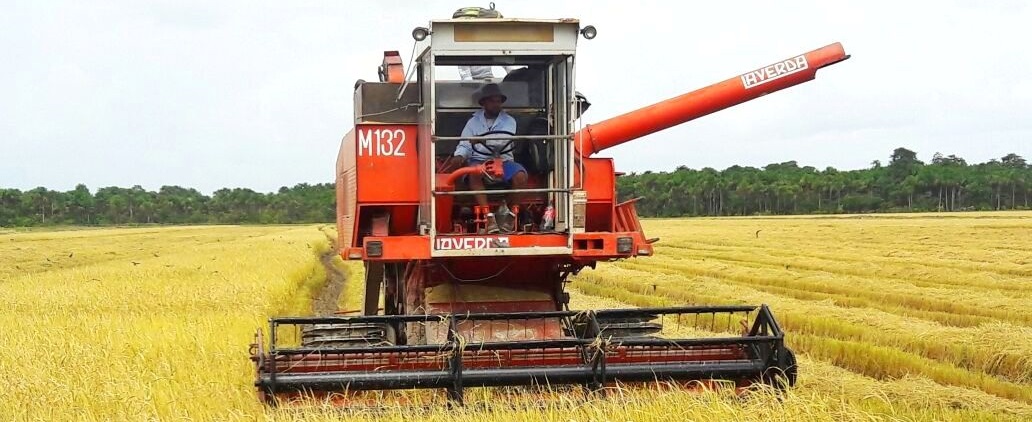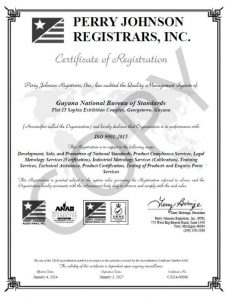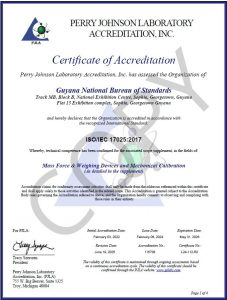The Guyana National Bureau of Standards (GNBS) under the 1981 Weights and Measures Act conducts the verification of all measuring devices used in trade countrywide. This is to ensure the accuracy and traceability of measurements.
This GNBS recognises the rice industry as crucial to the Agriculture sectors as it provides an important staple, needed foreign exchange to the economy, and directly and indirectly affects many livelihoods.
Hence, verification and monitoring by the GNBS usually intensify before and during the harvest of paddy, twice yearly. All weighbridge scales, platform scales, laboratory scales, and moisture meters used at rice mills, are checked to ensure transparency within the industry.
The effectiveness of this mammoth task however needs to be supported by both farmers and millers who must demonstrate vigilance and ensure adherence to established guidelines and procedures during the sale of paddy at mills. These guidelines are outlined in the following:
To ensure transparency and accuracy when buying paddy from farmers, millers must ensure that:
- Their devices (scales, masses, and moisture meters) are verified by the GNBS before use. Failure to have devices verified could result in the seizure or prohibition of their use.
- Only verified devices are used by competent personnel.
- The determination of moisture and dockage is done using moisture meters and dockage machines and are not estimated.
- The acquisition of samples from the truck/trailer is done correctly, to obtain representative samples.
- Farmers can witness the weighing of their paddy and the determination of the moisture and dockage contents.
- All transactions are conducted in the metric units of measurement.
- They promptly address queries raised by farmers to ensure transparency.
When selling paddy to millers, farmers also have their responsibilities. They should ensure:
- They are present at mills to oversee their interest or be properly represented by a suitable individual who is knowledgeable of the buying operations at mills.
- The indication on the scale and the moisture meter is at zero before weighing or measuring commences.
- To carefully observe the weighing or your paddy, by ensuring that the tare weight of your truck is taken after the paddy is weighed and offloaded. Subtract the tare weight of the truck from the total weight of the truck and the paddy previously obtained, to determine your actual weight. Record the value obtained.
- Witness the determination of your moisture content, by ensuring that the samples tested are those obtained from your truck/trailer and record the value indicated on the moisture metre.
- Carefully observe the determination of your dockage content, by ensuring that the samples tested are the samples obtained from your truck/trailer and record the value obtained.
- Check the values indicated for the weight, moisture, and dockage on the document given to you to ensure that they correspond with the values previously obtained and recorded.
- They are in full agreement with the values obtained for the weight, moisture, and dockage before signing any document provided.
Importantly, the determination of the moisture content and dockage contents must be done with a moisture meter and a dockage machine, respectively, and should not be estimated.
During the harvesting period, Weights and Measures Officers in the Regions and Inspectors of the GNBS will spontaneously visit rice mills across the country to witness the various weighing processes and to address the complaints and concerns of farmers and millers.
For further information on this subject, call the GNBS on Telephone number: 219-0065 or 219-0069 or visit the Bureau’s website: www.gnbsgy.org






